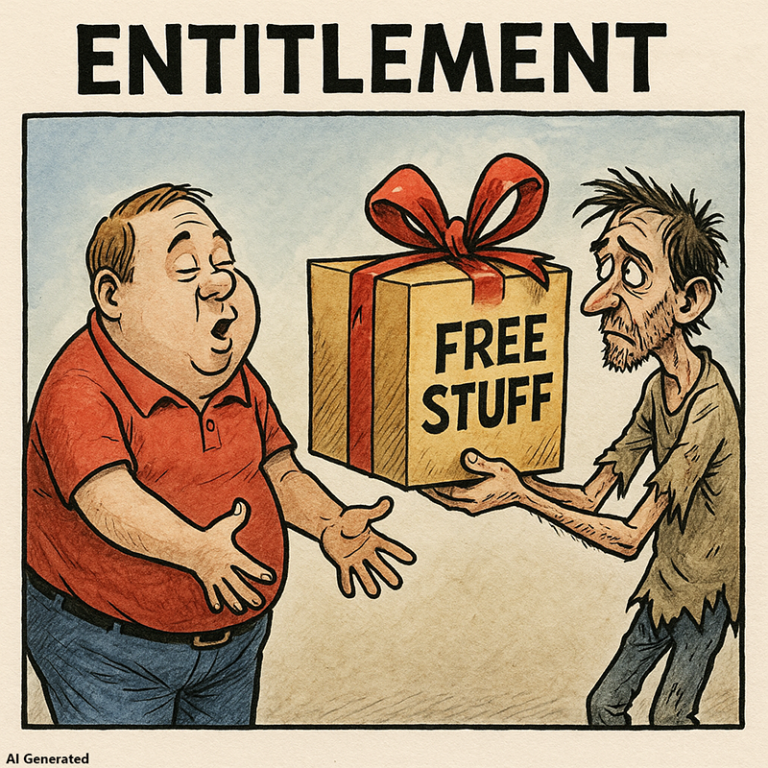This was originally published on May 14, 2012. It may be worth a second read.
Walter V. Wendler
______________________________________________________
Dear Graduating Senior,
I am begging your pardon for a somber reflection amidst the joy of accomplishment: not to be a wet rag on the festivities of graduation, but a bright light on the realities of post-secondary education.
If you are going on to a state university, your GPA is a 3.5 or better, your ACT or SAT score is at the 70th percentile – placing you in the top 30% of current test takers – and you enter the University this year, about 56% of students with similar qualifications will graduate in 6 years. What’s surprising about this number is that it’s not higher, closer to 85 or 90%. But college is tough. That is what you pay for.
On the other hand, if you’re going to a university with a more typical 2.8 GPA and are at the 45th percentile on the ACT or SAT, the likelihood of finishing in 6 years drops to well below 50%. These are not great odds. Not like the odds that you carried to high school when graduation was nearly guaranteed. Show up and win.
It wouldn’t surprise you that if you are well-prepared for college study – a good GPA, ACT/SAT score, and class rank in the top 50% – you are more likely to succeed, whether on borrowed funds or your dime. But access does not equal success.
Nearly 2 out of 3 students on the way to a baccalaureate degree borrow money. This is troubling. While the high school experience appears to be free, unless of course you pay taxes, the university experience is not. Additionally, the drop-out rate for those who take loans is nearly 23%. Imagine taking out a car note and never being able to drive it, or buying a house that you can never eat or sleep in.
If you haven’t posted a good academic performance in high school, don’t believe a university, its leadership, advertisements, or admissions officers who co-sign your promissory note with no responsibility for its payment obligation.
They need paying students.
Stoking a deceitful dream on life support – an under-appreciated, over-financed, media-hyped charade – is the real deception, and the weight falls on your back, not theirs.
A shameful, elaborate sham, when 1 out of 2 college graduates this year are unemployable in their chosen field.
Look carefully at the costs and benefits of university education. University officials may not tell you the truth: enrollments could drop. Bankers will not tell you the truth: interest income will fall off. Elected officials will not tell you the truth: elections will be lost. Talk to family, friends, and educators for counsel. And listen to those really concerned for you carefully.
If you choose to attend a “second best” university, you may be lulled into thinking that your chances for graduation will improve significantly. Not true. You will find, at good mid-major institutions and many teachers colleges, that high-quality faculty demand energy, interest, intellectual acuity and classroom performance; and if you haven’t exhibited that in high school, the likelihood that you will spontaneously develop them amid the distractions of university is near nil. There are very few curve breakers.
Maybe you can find a low stress major and get through on little work. You probably won’t find a job – remember half don’t. Econ 101 tells it like it is -YGWYPF- but in reality if you are borrowing, you didn’t pay for it. Yet.
A low-employability, near minimum wage major and $50,000 in debt – national averages are a bit over $25,000 – is less valuable than a good high school diploma with four years of experience.
Unenlightened? Call me a caveman. Cruel? I think of it as honest.
Here is the substance of my advice as you graduate.
One: If you have to borrow money to enter a university straight away, don’t. Go to a community college. Pick rigorous courses that you know will transfer and get them at an 80% discount off the cost of state university prices.
Don’t borrow a dime.
If you need a boost to finish after demonstrating ability at a community college, borrow sparingly in the last two years, but never in the first two.
Never.
Two: If your life circumstance requires you to work and study simultaneously, do it. There is no law of the universe that says a college education must take four years. If it takes more, and you can do it for cash, do it. Don’t borrow money.
Three: Consider carefully with your family, and counselors you trust, the dollar value of your career path choice. Find a way to graduate from college in a chosen career option with little or no debt.
Four: If you walk to class on C-note Nikes, or checking a Diesel watch to see if you’re late, you are acting foolishly. Sorry for insensitive straightforwardness. When every friend you’ve got heads to Acapulco on spring break, don’t go. Go do something noble to create capital. Work. Or Study. But, don’t spend or export borrowed capital.
Five: Lastly, if you think you worked hard in high school, know that any university worth its salt will have you working at levels 4 to 5 times more challenging for a good GPA.
Study hard, work diligently, and challenge yourself intellectually. Show this to someone you respect and ask them if I sound crazy. I dare you.
All the best in your future.
Sincerely,
WVW








Excellent. Very good analysis and sdvice.
We need the equivalent of a General Smedley Butler for higher education. He stated that “War is a Racket.” So is higher education today in terms of your very apt words “stoking a deceitful dream on life support.” While higher education CEOs earn the equivalent of $400,000 p.a. as tenure -track opportunities decline, faculty positions eliminated or frozen, term contracts increase, libraries cut their humanities journals budegts by $1 million, Board of Trustees vote $3 million for baseball fields, and libraries consider eliminating print versions of books and journals, these are very dire times. Again, repeating your open letter of last year is more timely than ever.
Wow, an educator telling the truth, how refreshing. I can’t wait to go home and have my 15-year-old son read this article. Thank you.
Expansion on item three and personal experience of the ‘racket’
Another way a young person can get free education is to enter military service. Upon release from service I decided I was mature enough to give it a go. Our family is now reaping the benefits of higher education with a total debt of $7500 which includes an anticipated Masters degree in August and a good job awaiting us. I lament that there are not other public services such as social work or government service with such a program (at least well known) in the United States. Anyone who sacrifices the self for the greater should be considered, and society is well compensated in the investment when the money went towards people with a desire to preserve it.
Things were not always so glamourous.
My experience graduating high school was bad. I was herded to a guidance counselor I did not have a relationship with and she gave advice according to the prevailing winds in lieu of even attempting true communication. Ready or not I went to college and failed with a black hole in my wallet. My testimony of arrested development is this: Don’t waste 12 years of education on a child only to fall short the 12 hours of educating them of their options. I think the only qualified person to do this is dad or mom, but this article can give parents the ammunition when the time is right. On target and clear.
Overall, good advice, but like most other pieces of general information it contains some flaws worth pointing out. First, given the range of courses which can be taken in high school, many students “self-select” for future success or lack of success in college while still in high school. By the time a student is a senior, the path is often laid out. Most admission people and college deans will tell you that there is little high school gpa, r-i-c and test score difference between those who succeed at their schools and those who don’t. There are many other variables at work. The courses one took, especially the courses beyond the minimum for admission consideration, make a huge difference in persistence to degree. The student with the credentials suggested by the author who has four courses in the five main academic areas has a much better chance of graduating from college than the student who stops with two or three years of math, two years (or none) of foreign language and who has not taken challenging college-prep courses in English and social studies. Data show that the student with a college-prep course in a science in 12th grade is well on the way to beating the odds. Additionally, choice of college attended often correlates with higher graduation rates. Is it causal? Who knows, but students who gain admission too and attend the flagship state university (the Wisconsins, the Michigans, the Virginias the UCs) will find that 80 to 90% of their cohort each year will graduate. Something is at work here. Not all state university experiences are the same. Perhaps it’s working up to the level of the competition, perhaps it is being goal motivated while in high school and knowing that students need to apply and challenge themselves to gain something worthwhile. Perhaps knowing that all state schools are not the same, just as not all private schools are not the same, and knowing that good high school preparation and early goal setting gets stronger students into these schools can help tip the odds. Maybe knowing that you’re not the smartest student in the classroom in college can cause one to rise to the competition. The author’s financial advise is still good, but let’s be careful about what we equate to success prediction.
Has the ‘Housing Bubble’ now become the ‘Higher Education Bubble’ with those same Mortgage Brokers becoming the University Advisors??? Like an old Burger commercial once asked…. Where’s the Beef??? ….. Where’s the Faculty???… in this latest model?
The Housing Bubble traded on and stacked worthless, but expensive paper to drive profits and to receive more support from government interests… with inflated costs.
This bubble burst, submerged our economy, and sank the poorest of our country into a homeless existence fueled by false promises and massive debt.
The Housing Bubble Model pushed for profits (cash/commission) without concern. This ‘push’ was carried out by front-line service people ( working on sales commissions and ‘head-count’ ) Those fast empty sales were rewarded without any concern for the ultimate and negative consequences.
From the Housing Bubble Model, what is the Faculty’s role in the Higher Education Bubble ???
Are the Faculty now the House Builders of the Housing Bubble, producing the ‘product’ for auction to the lowest bidder?